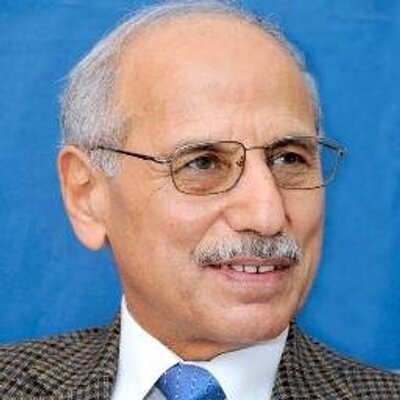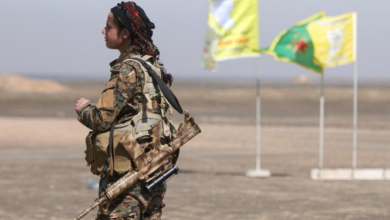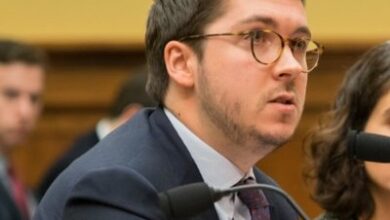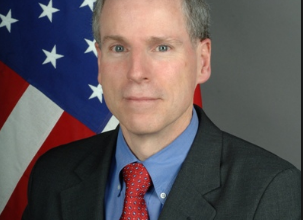
Barzani opens a new page in Baghdad
Adnan Hussein
If the current Iraqi prime minister was someone else other than Adil Abdul Mahdi, it would have been difficult to imagine that the leader of Kurdistan Democratic Party Massoud Barzani will visit Baghdad at this time, following the most dangerous and acute crisis in relations between the Federal capital of Baghdad and the capital of the Kurdistan region of Iraq, Erbil.
This is the most serious crisis since 2003 and it erupted following the 2017 referendum which was organized by the Kurdistan region to determine the degree of the Kurds’ support in the right of determining their fate. The referendum’s consequences pretty much included rupture of relations between the largest Kurdish parties and the government of Baghdad and the most influential political forces in the country for over a year.
Both parties, in Baghdad and Erbil, have invested in the fact that Abdul Mahdi maintains a close and long relationship with Kurdish parties, especially the Kurdistan Democratic Party, prior to the fall of Saddam Hussein’s regime in 2003. Abdul Mahdi actually stayed in the Kurdistan region for a period of time and he opposed the Baath regime under the protection of the Kurdish movement and the Peshmerga forces. Following the fall of Saddam’s regime, Abdul Mahdi worked closely with Kurdish leaders in Baghdad during the Iraqi Governing Council period and succeeding government sessions in order to establish and reinforce the current political process.
The strong ties were seen in Abdul Mahdi’s warm welcome of Barzani upon his arrival in Baghdad last week. They exchanged words casually referring to themselves as Abu Mesrur for Barzani and Abu Hashem for Abdul Mahdi. However, the special celebration of the Kurdish leader was not limited to Abdul Mahdi, as Parliament Speaker Mohamed al-Halbousi and leader of the Fatah Alliance Hadi Al Amiri along with a number of senior state officials welcomed Barzani at the airport. Later on, Barzani held meetings with all of the leaders of influential political blocs and forces.
Originally, Barzani was a clear supporter and quite enthusiastic toward assigning Abdul Mahdi as the new Iraqi PM. This appointment succeeded in solving the big problem between Shiite political forces. The problem was over who should be the new PM following the May elections which this time did not produce a clear large bloc. Appointing Abdul Mahdi also shortened distances and eliminated several stages hindering the relationship between Baghdad and Erbil to repair the cracks and the emerging fractures resulting from the move of holding a referendum, which, by the way, was not really timely.
Barzani’s visit to Baghdad came at the right time for both parties since Baghdad has been experiencing the crisis of cabinet formation which has taken a long time. Baghdad’s and Erbil’s openness towards each other is supposed to provide the suitable push to complete the cabinet formation. Moreover, there is a general Iraqi interest in normalization with Erbil as there is a need to resume the export of Kirkuk oil to the Turkish ports through the Kurdistan region’s territories (exports actually resumed already).
Economic challenges
Iraq is currently in dire need for this export as oil prices are beginning to decline in international markets and are expected to decrease even more along the lines of American politics. Baghdad and its new government need to raise the level of financial revenues from oil sales in order to fulfill development promises drawn in the ministerial program of Abdul Mahdi’s government, of which the main test will be in terms of improving the deteriorating system of services. This requires spending tens of billions of dollars in the short term in order to avoid repeating last summer’s scenario when a strong protest movement emerged. The latter represented the main reason behind discontinuing former Prime Minister Haider Abadi’s mandate and selecting Abdul Mahdi instead.
On the other hand, Erbil saw in having a friend of the Kurdish leaders in power in Baghdad an occasion to reopen the files regarding the relationship with Baghdad, which became quite complicated even before the holding the referendum. Cracks began to surface during the term of former Prime Minister Nuri al-Maliki and deepened during the term of his successor Haider Abadi. This resulted in severe effects on the living situation of the Kurdistan region’s people who now await the formation of their new cabinet which they hope it will improve this particular situation and this cannot be achieved unless through normal and stable relations between Erbil and Baghdad.
Baghdad cannot resume the policy pursued in the past two governments which was based on the attempt to marginalize the role of the Kurdistan Democratic Party as well as Barzani. The Kurdistan Democratic Party is now not only the largest Kurdish party (45 seats in the regional parliament), but the largest party in Iraq (25 seats in the Federal House of Representatives, and no other party occupies the same number of seats in the Parliament). Hence, the Kurdistan Democratic Party and its leader are two major players in Iraqi internal and external policy.
During Barzani’s meetings with leaders of influential parties in Baghdad, the term “new page” was often repeated in the statements made. Indeed, this visit could open a new page in the relationship between Baghdad and Erbil and in the history of contemporary Iraq, but this requires a swift transition from the good intentions announced by both parties to good deeds that must be achieved on the ground …by both sides of course.
alarabiya



